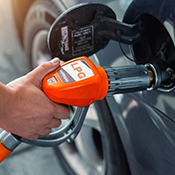
Use Fuel Tax
How to Use This Guide
The Getting Started page provides key resources related to registration, filing returns, account maintenance, other required licenses and permits, and other important information you need.
The Vendor, User, and California Fuel Trip Permit pages provide detailed information specific to each program.
The Industry Topics page contains specific topics important to the users and vendors for use fuel tax purposes.
Use Fuel Tax
Fuels subject to the use fuel tax are often referred to as alternative fuels. Use fuel is defined as any combustible gas or liquid, by whatever name the gas or liquid may be known or sold, of a kind used in an internal combustion engine for the generation of power to propel a motor vehicle on the highways. It does not include fuel that is subject to the tax imposed by the Motor Vehicle Fuel Tax Law (including aircraft jet fuel tax) or the Diesel Fuel Tax Law.
Imposition of Tax — Use Fuel Tax
Use fuel tax is imposed on the use of certain fuels in California when:
- Used in an internal combustion engine to propel a motor vehicle on a highway in California; or
- Placed in a container on a vehicle, such as a fuel tank, from which fuel is supplied to run the vehicle on a highway. Fuel placed into containers not connected to the fuel system (for example, auxiliary tanks, drums, or jerry cans) may be subject to tax if the fuel is intended for operating a vehicle on a highway.
A person placing fuel in a receptacle on a motor vehicle of another who holds a valid Use Fuel Tax Permit is not considered to have used the fuel.
How the Use Fuel Tax Revenue is Used
Use fuel taxes provide revenue for planning, constructing, and maintaining California's publicly funded roadways and public mass transit systems.
